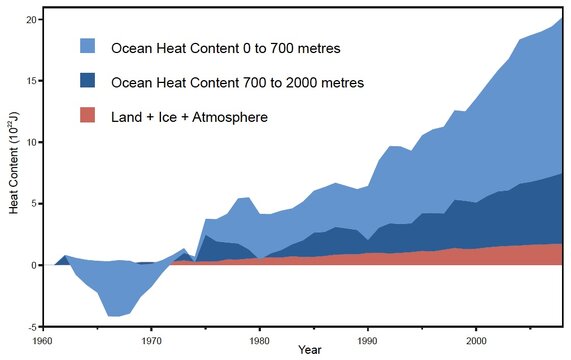Burnt State
Paranormal Adept
"Current sea level rise is after all not exaggerated, in fact the opposite case is more plausible. Observational data and changing conditions in such places as Greenland suggest if there's a real problem here it's underestimation of future sea level rise. The IPCC synthesis reports offer conservative projections of sea level increase based on assumptions about future behavior of ice sheets and glaciers, leading to estimates of sea level roughly following a linear upward trend mimicking that of recent decades. In point of fact, observed sea level rise is already above IPCC projections and strongly hints at acceleration while at the same time it appears the mass balance of continental ice envisioned by the IPCC is overly optimistic (Rahmstorf 2010 )."The last thing I'll take issue with is the constant quoting of estimates done by NOAA and other respectable institutions. All of these agencies run numerous models and "what if" scenarios. They get a wide range of results ranging from no sea level rise to 20 feet by 2100. The author chose the most devastating "what ifs" to quote inHow much is sea level rising? his article. Even the IPCC has backed off its early claims and only expects modest sea level rise by 2100. For the worst sea level rise to happen, the Greenland ice sheet would have to melt. That is just not likely to happen.
From: How much is sea level rising?
What's difficult in this discussion is that most articles, pro or con, tend to cherry picke data from singular studies and fail to take in historical data trends as well all the various aspects of interrelated fields before making any pronoucements. Working with more holistic data indicates that Greenland's ice is as vulnerable as all other ice sheets, and glaciers, whose very specific trend is shrinkage on a persistent, global scale and not just the normal give and take fluctuation of glaciers as some climate deniers like to throw back into the wind.



